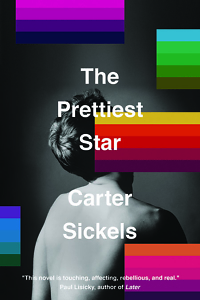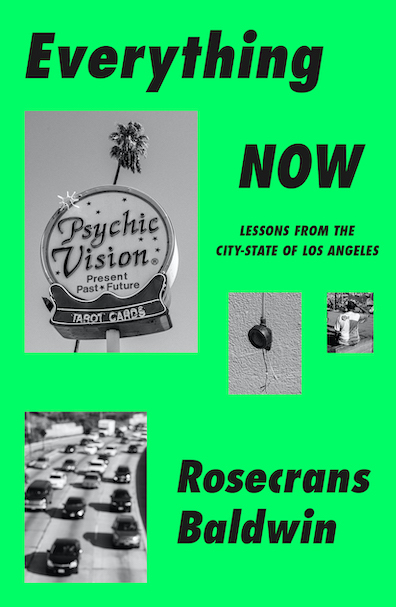The AIDS Years
In Carter Sickels’ The Prettiest Star, set in 1986, a young AIDS patient encounters bigotry when he returns to his hometown in Ohio
Carter Sickels’ novel The Prettiest Star begins in April 1986 when 24-year-old Brian Jackson, suffering from advanced-stage AIDS, leaves New York and returns to his hometown of Chester, Ohio. Six years earlier New York gave him new life, but now the city has become haunted, as dozens of his friends, including his lover Shawn, have succumbed to the disease. Brian no longer feels like a young man, “not in AIDS years. In AIDS years, age doesn’t matter.” He knows that his family, who never accepted him as gay, is unprepared for his current condition, but he has nowhere else to go.
 Sickels captures the atmosphere of the times in scenes that are painfully realistic. Much of the novel concerns how Brian’s family and the rest of the town respond to his presence. In Chester, a toxic combination of ignorance, bigotry, and superstition creates a consensus that Brian represents a threat to the town’s way of life.
Sickels captures the atmosphere of the times in scenes that are painfully realistic. Much of the novel concerns how Brian’s family and the rest of the town respond to his presence. In Chester, a toxic combination of ignorance, bigotry, and superstition creates a consensus that Brian represents a threat to the town’s way of life.
Residents believe that the disease is just punishment from a righteous God. These upstanding Christians leave threatening messages on his parents’ answering machine, throw trash on him in the street, paint “faggot” on the family’s garage door. To readers under 40, such uncouth hostility might read as satirical exaggeration, but those of us who lived through the 1980s know it to be, sadly, perfectly accurate.
As Brian discovers, homophobia does not stop at the Jacksons’ threshold. His father Travis, a Chester native who embodies the town’s macho ethos, cannot bring himself to make eye contact with Brian or acknowledge his son’s sexuality or illness. By contrast, Brian’s grandmother Lettie welcomes him with open arms and tacit acceptance. Brian reminds Lettie of her late brother Albert, another “artistic and sensitive” young man who “never had a girlfriend” but possessed Brian’s “special way of seeing the world.” These characters caution us that, while love can overcome prejudice, sometimes bigotry becomes too deeply entrenched to be rooted out.
Sickels splits the narration among Brian, his mother Sharon, and his younger sister Jess. At first, Sharon is paralyzed by ambivalence, torn between her maternal instincts to embrace him and her ill-disguised repulsion at his illness. “I can’t take my eyes off him,” Sharon says in an early scene. “He’s still handsome — in a worrisome way, like he’s walked through dangerous land to get here, spent days without food, water, sunlight.”
The character most deeply affected by Brian’s return is Jess, who was just 8 when Brian left for New York. As a child, she clung to his side. “He told me about the places in the world he wanted to go,” Jess says. “I would have followed him anywhere.”
 Without Brian to guide her, Jess has become tentative, amorphous; her only friends are her fellow “benchwarmers” on the softball team. “We aren’t popular but we don’t get picked on either — nobody notices us, thank God,” Jess says. With Brian attracting negative attention from all directions, Jess can no longer remain anonymous. She vacillates between denying him and standing up for him, but her hardest lesson is learning to do without him.
Without Brian to guide her, Jess has become tentative, amorphous; her only friends are her fellow “benchwarmers” on the softball team. “We aren’t popular but we don’t get picked on either — nobody notices us, thank God,” Jess says. With Brian attracting negative attention from all directions, Jess can no longer remain anonymous. She vacillates between denying him and standing up for him, but her hardest lesson is learning to do without him.
David Bowie, whose 1973 song gives the novel its title, is Brian’s model and ideal. In his adolescent bedroom, Brian recalls listening to records and dreaming of New York, “David Bowie’s voice carrying me out of Chester into the starry sky.” Brian points to a poster of Bowie: “Look at his blushed cheeks, feathered hair like a halo. Cigarette in hand, silver bracelet sparkling like a disco light. Space oddity, alien, freak.” He remembers Bowie appearing on television with Cher, the two of them “long-legged, feral creatures in white pants. I was rapt, my body burning, and the edges of Chester exploding: there was a bigger world and I wanted to see it, to be in it.”
If Bowie is a beam of light, the town of Chester is cloaked in primordial darkness. Brian’s uncle Wayne proclaims that “people with AIDS should be sent to a far-away island.” A Methodist minister tells his congregation, “Make no mistake, homosexuality is a sin … These men, that’s why they’re getting sick.” The reverend’s son, a pervy guidance counselor who gets handsy with Jess, tells the boys in youth group to respect women and “stay away from the homos.”
Amid the sanctimony and intolerance, Sickels offers moments of compassion and goodness. Brian’s New York roommate Annie arrives periodically, her vital presence a welcome antidote. Brian makes a new friend in Chester, a gay man who has managed to craft a happy life for himself in unpropitious surroundings.
Brian’s narration takes the form of video recordings, a gesture of hope intended to memorialize the life of his friends, many of whom won’t last the decade. The Prettiest Star pays homage to the victims of that horrible time and offers a measure of solace to the survivors.

Sean Kinch grew up in Austin and attended Stanford. He earned a Ph.D. from the University of Texas. He now teaches English in Nashville.

